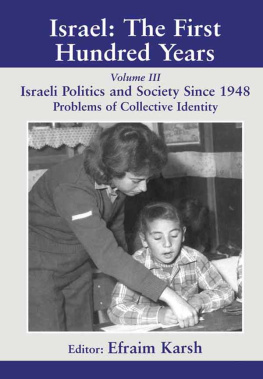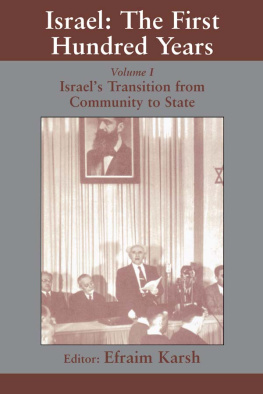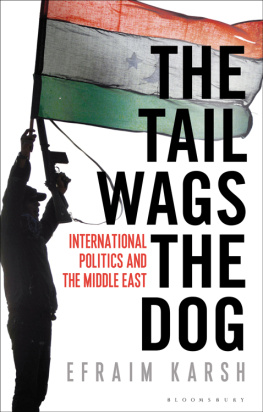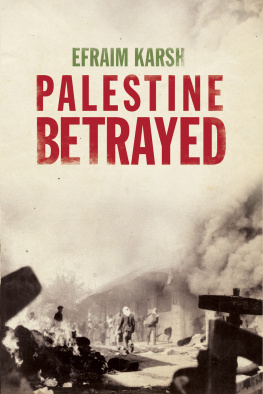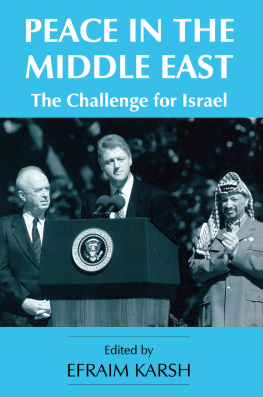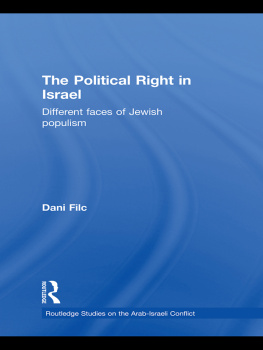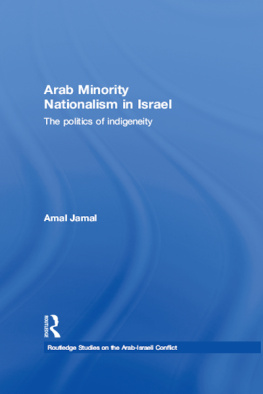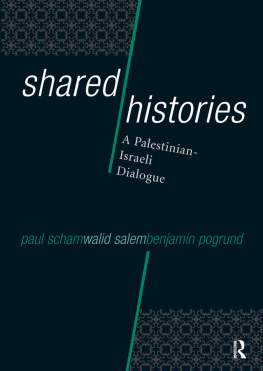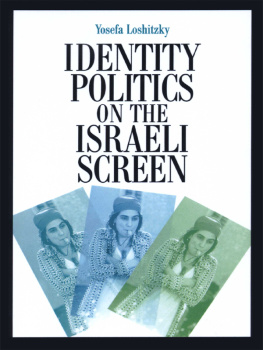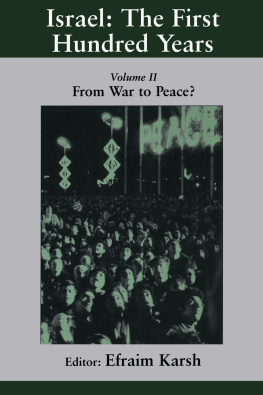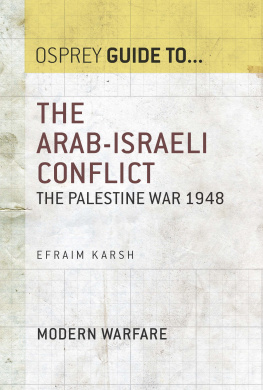ISRAEL: THE FIRST HUNDRED YEARS
CASS SERIES: ISRAELI HISTORY, POLITICS AND SOCIETY
Series Editor: Efraim Karsh
ISSN: 1368-4795
This series provides a multidisciplinary examination of all aspects of Israeli history, politics and society, and serves as a means of communication between the various communities interested in Israel: academics, policy-makers, practitioners, journalists and the informed public.
Peace in the Middle East: The Challenge for Israel, edited by Efraim Karsh.
The Shaping of Israeli Identity: Myth, Memory and Trauma, edited by Robert Wistrich and David Ohana.
Between War and Peace: Dilemmas of Israeli Security, edited by Efraim Karsh.
U.S.-Israeli Relations at the Crossroads, edited by Gabriel Sheffer.
Revisiting the Yom Kippur War, edited by P. R. Kumaraswamy.
Israel: The Dynamics of Change and Continuity, edited by David Levi-Faur, Gabriel Sheffer and David Vogel.
In Search of Identity: Jewish Aspects in Israeli Culture, edited by Dan Urian and Efraim Karsh.
Israel at the Polls, 1996, edited by Daniel J. Elazar and Shmuel Sandler.
From Rabin to Netanyahu: Israel's Troubled Agenda, edited by Efraim Karsh.
Fabricating Israeli History: The New Historians, second revised edition, by Efraim Karsh.
Divided Against Zion: Anti-Zionist Opposition in Britain to a Jewish State in Palestine, 1945-1948, by Rory Miller.
Peacemaking in a Divided Society: Israel After Rabin, edited by Sasson Sofer.
A Twenty-Year Retrospective of Egyptian-Israeli Relations: Peace in Spite of Everything, by Ephraim Dowek.
Global Politics: Essays in Honour of David Vital, edited by Abraham Ben-Zvi and Aharon Klieman.
Parties, Elections and Cleavages; Israel in Comparative and Theoretical Perspective, edited by Reuven Y. Hazan and Moshe Maor.
Israel at the Polls 1999, edited by Daniel J. Elazar and M. Ben Mollov.
Public Policy in Israel, edited by David Nachmias and Gila Menahem.
Israel: The First Hundred Years(Mini Series), edited by Efraim Karsh.
Israel's Transition from Community to State, edited by Efraim Karsh.
From War to Peace? edited by Efraim Karsh.
Politics and Society Since 1948, edited by Efraim Karsh.
Israel in the International Arena, edited by Efraim Karsh.
Israel:
The First Hundred Years
VOLUME III
Israeli Society and Politics Since 1948: Problems of Collective Identity
Editor
Efraim Karsh
First published in 2002 by
FRANK CASS PUBLISHERS
This edition published 2013 by Routledge
2 Park Square, Milton Park, Abingdon, Oxon OX14 4RN
711 Third Avenue, New York, NY 10017
Routledge is an imprint of the Taylor & Francis Group, an informa business
Copyright 2002 Frank Cass & Co. Ltd
British Library Cataloguing in Publication Data
Israel : the first hundred years
Vol. 3: Israeli society and politics since 1948 : problems
of collective identity editor, Efraim Karsh. (Israeli
history, politics and society)
l.Jews Palestine History 20th century 2. Palestine
History 20th century
I.Karsh, Efraim
956.9405
ISBN 0 7146 4961 9 (cloth)
ISBN 0 7146 8022 2 (paper)
ISSN 1368-4795
Library of Congress Cataloging-in-Publication Data
A catalog record for this book is available from the Library of Congress.
This group of studies first appeared as Israeli Politics and Society Since 1948: Problems of Collective Identity, a special issue of Israel Affairs, Vol.8, Nos.1&2 (Autumn/Winter 2002), published by Frank Cass and Co. Ltd
All rights reserved. No part of this publication may be reproduced, stored in or introduced into a retrieval system or transmitted in any form or by any means, electronic, mechanical, photocopying, recording or otherwise, without the prior written permission of the publishers of this book.
Contents
| Mordechai Nisan |
The Fracturing of the Jewish Self-Image:
The End of We Are One? | Judith Elizur |
| Oz Almog |
| Dan Urian |
| Yechiam Weitz |
| Yaacov N. Goldstein |
Likud and the Search for Eretz Israel:
From the Bible to the Twenty-First Century | Colin Shindler |
The Delicate Framework of Israeli Democracy During the 1980s:
Retrospect and Appraisal | Raphael Cohen-Almagor |
StateReligion Relations in Israel:
The Subtle Issue Underlying the Rabin Assassination | Efraim Ben-Zadok |
| Dana Arieli-Horowitz |
| Yossi Ben-Artzi |
| Dvora Hacohen |
| Moshe Gat |
| Mira Moshe |
| David De Vries and Yoav Vardi |
MORDECHAI NISAN
BETWEEN EXISTENCE AND IDENTITY
One hundred years of modern Zionism and fifty years of the State of Israel provide convenient historical landmarks to reflect on the political return of the Jewish people to history. It was a vibrant collective memory that enabled this people to imagine that a national renaissance could be wrought from the legacy of an extraordinary march through time. The memory bank of the Jews meandered comfortably from Abraham to Moses, to David and Hillel and from exile to homeland: it constituted the spiritual strength of an ancient people, which was compromised by contact with modernity and its assimilationist pull. The history of the Jews demanded a reconstruction to escape the dim shadows of Diaspora life, its indignities and insecurities, on the way toward redirecting the path of Jewish history, in concrete ideological, geographical and political ways. Memory, in short, provided the Jewish people with the springboard for a return to history.
Yet, the political return that culminated in the founding of the State of Israel in 1948 is but one aspect of this extraordinary human triumph. The broader context of Israel's place in the Middle East and the world touches on the civilizational and religious matrix of its situation in relation to both the Muslim East and the Christian West. While the Zionist movement addressed the Jewish Question of powerlessness and homelessness by proposing (and achieving) a radical territorial and political solution, it was unable to transcend the deeper and older problem of the Jewish people as outcasts in history. Israel has inherited the traditional Jewish Problem and it has become an aspect of modern international political history.
This perspective provided no room for a synthetic weaving of tradition with modernity, a particular religion with a universal culture, owing to the fundamental incompatibility between Israel and the Western nations. Jews could reside comfortably in America, but a Jewish people should not comfortably accommodate Americanization in Israel.
It is important to mention that Jewish history in the ancient past, though always the struggle of a small and endangered people, did not and could not avoid confrontation with major world civilizations. Jewish holidays commemorate this heroic tapestry, of war and liberation from Egypt, victory over Persia, and triumph over Greece. Nor does it overlook the terrible losses inflicted by Babylon and Rome. Much of Jewish history is embedded within the fabric of clashing civilizations. In fact the clash is a series of civilizational assaults by large and expansionist powers against the vulnerable but proud Jews. Manifestations of Jewish national self-assertion express the spirit of independence, not always a calculus of power vis--vis the predatory hegemonic forces in history.

